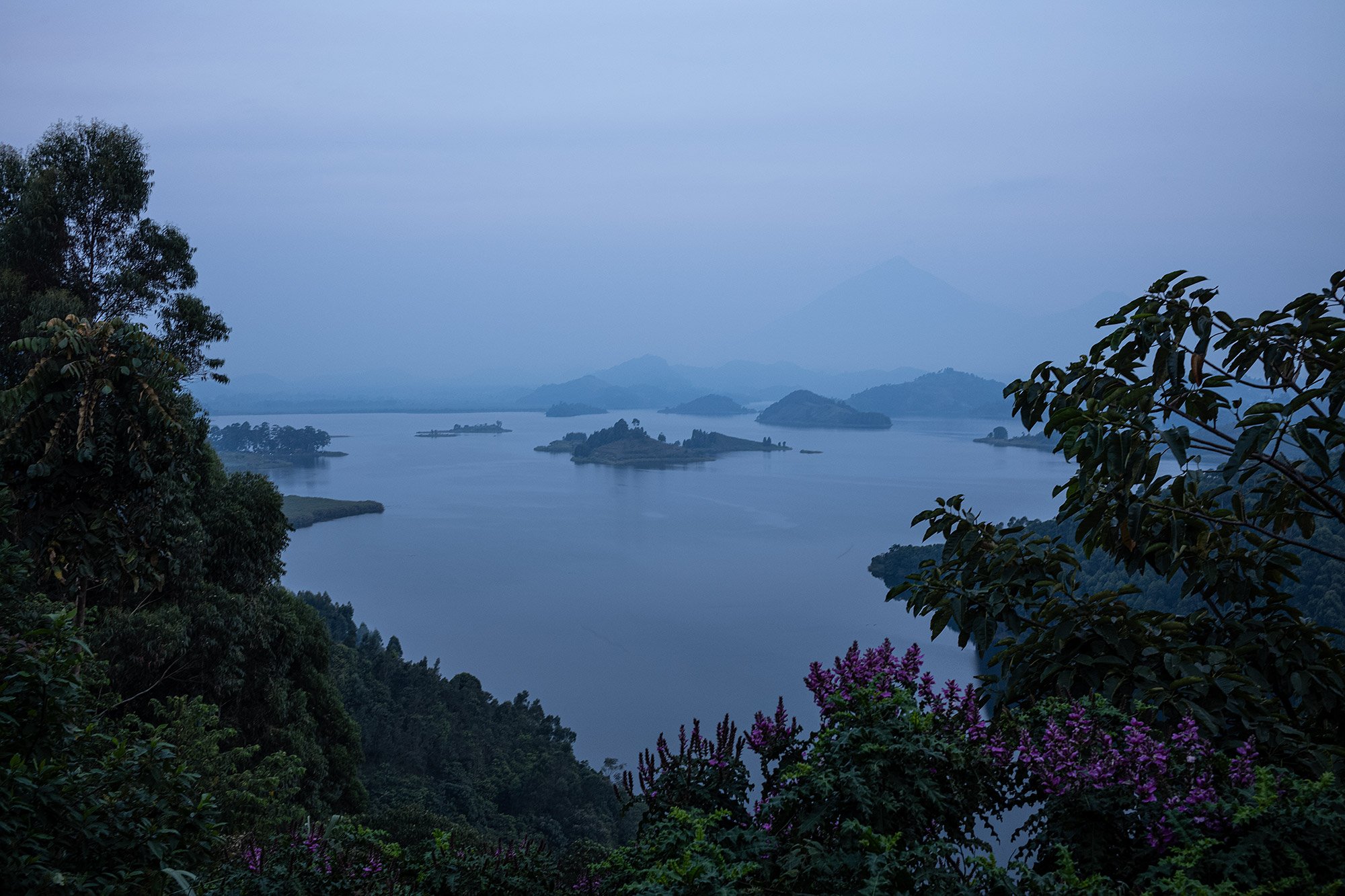
Rwanda & Uganda:
Chapter four
Rwanda to Lake Mutanda, Uganda.
From Musanze, it’s only half an hour to the border at Cyanika, but I’m once again to make my way from Kigali making it a five hour trip to my lodge overlooking Lake Mutanda.
I hadn’t originally planned to visit Uganda, but armed with an East African visa and the prospect of a three-day weekend ahead I reach out to Ramona to see if it’d be possible to obtain a last-minute gorilla trekking permit for Bwindi Impentrable Forest. Amazingly, she makes it happen and I find myself once again on the road. It’ll be my fifth weekend traveling in a row since leaving Buenos Aires a little over a month ago. I’ve lost track of how many places I’ve slept since then.
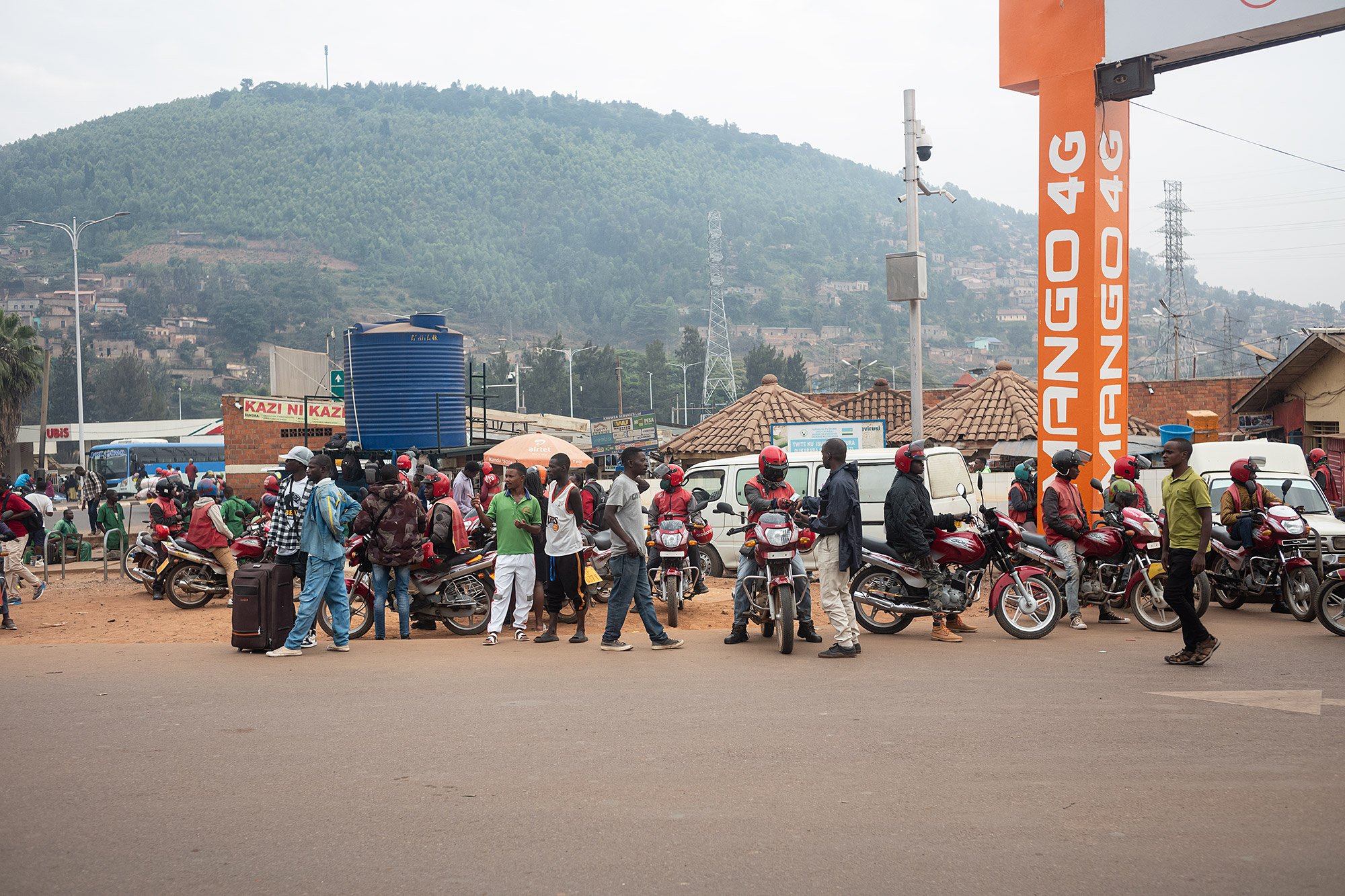
Kenneth picks me up at 0700. I had hoped to sleep in, but it’s a long drive and the time we spend at the border can be unpredictable. He’s one of five, married with two daughters. I ask him if he’s planning on having more, and he says no. In the past, having many children was a sign of wealth, but even in the villages families are cutting back on the number of children they’re having. There’s less opportunity and it’s become more difficult to provide for them.
I ask him what his children want to be. He says that all children want to be one of three things: a soldier, teacher, or doctor. The former because they see soliders with guns all the time and want to be tough like them; they also see teachers every day and it’s another role model for them.

As we drive, Kenneth comments on how clean Rwanda is. Once a month there’s a national holiday where the nation participates in umuganda, manditory nationwide community work to clean up the country. Even the president puts on boots and work clothes and steps out to help clean up the country.
He’s rightfully proud of his country and the program, which has inspired similar programs in South Africa and South Sudan.
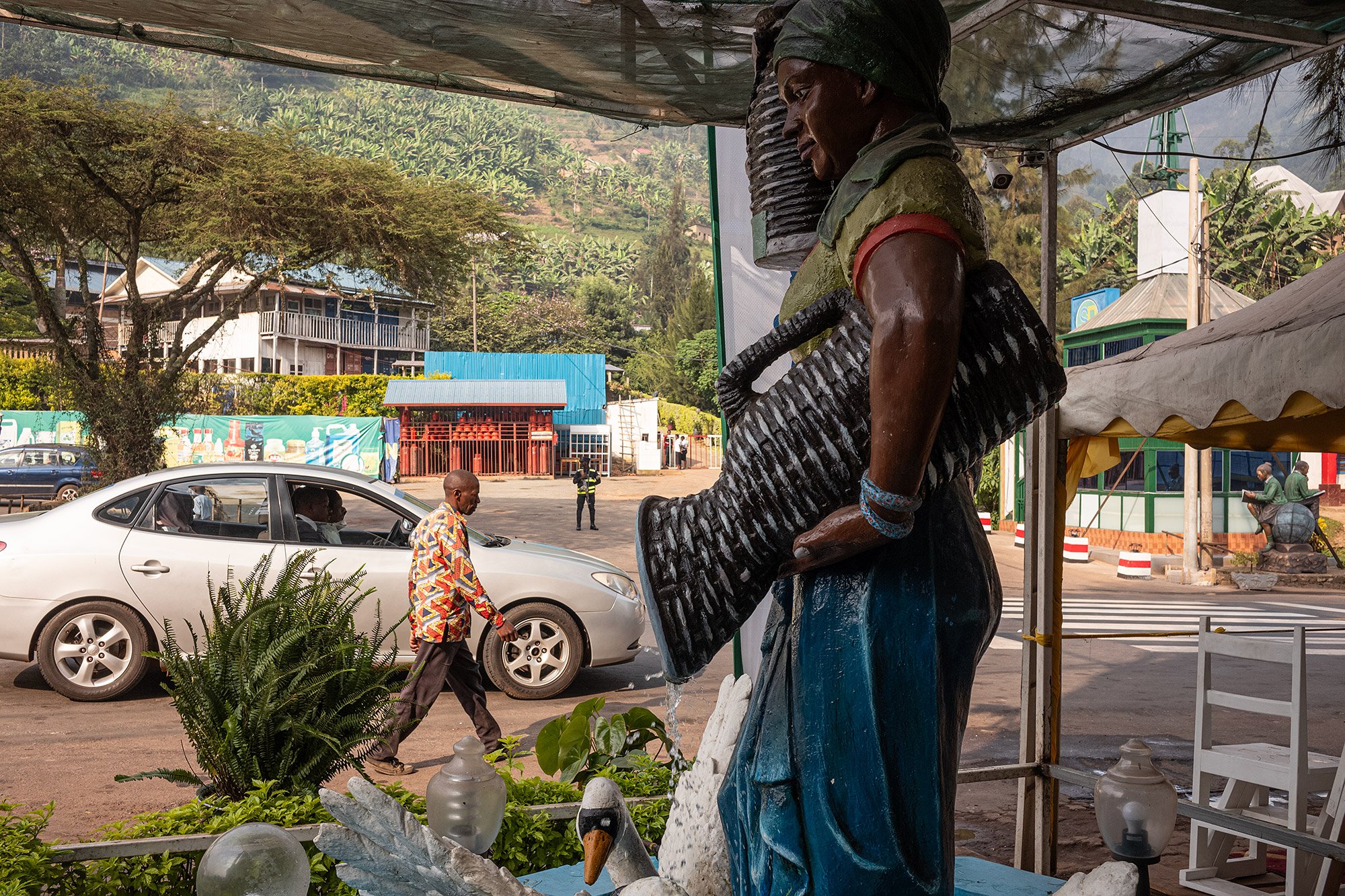
Halfway to Musanze we stop at a small village that has become a transit hub. Buses stop to discharge and take on passengers, offering them a washroom stop and a place to pick up snacks.
As we reach Musanze, we head north before entering the city proper. The road narrows and potholes begin to appear. Trucks seem to dominate, bringing goods from the coast of Kenya into Rwanda and onto the Congo. Opportunistic cyclists hang onto the backs of trucks out of sight to take advantage of their power.
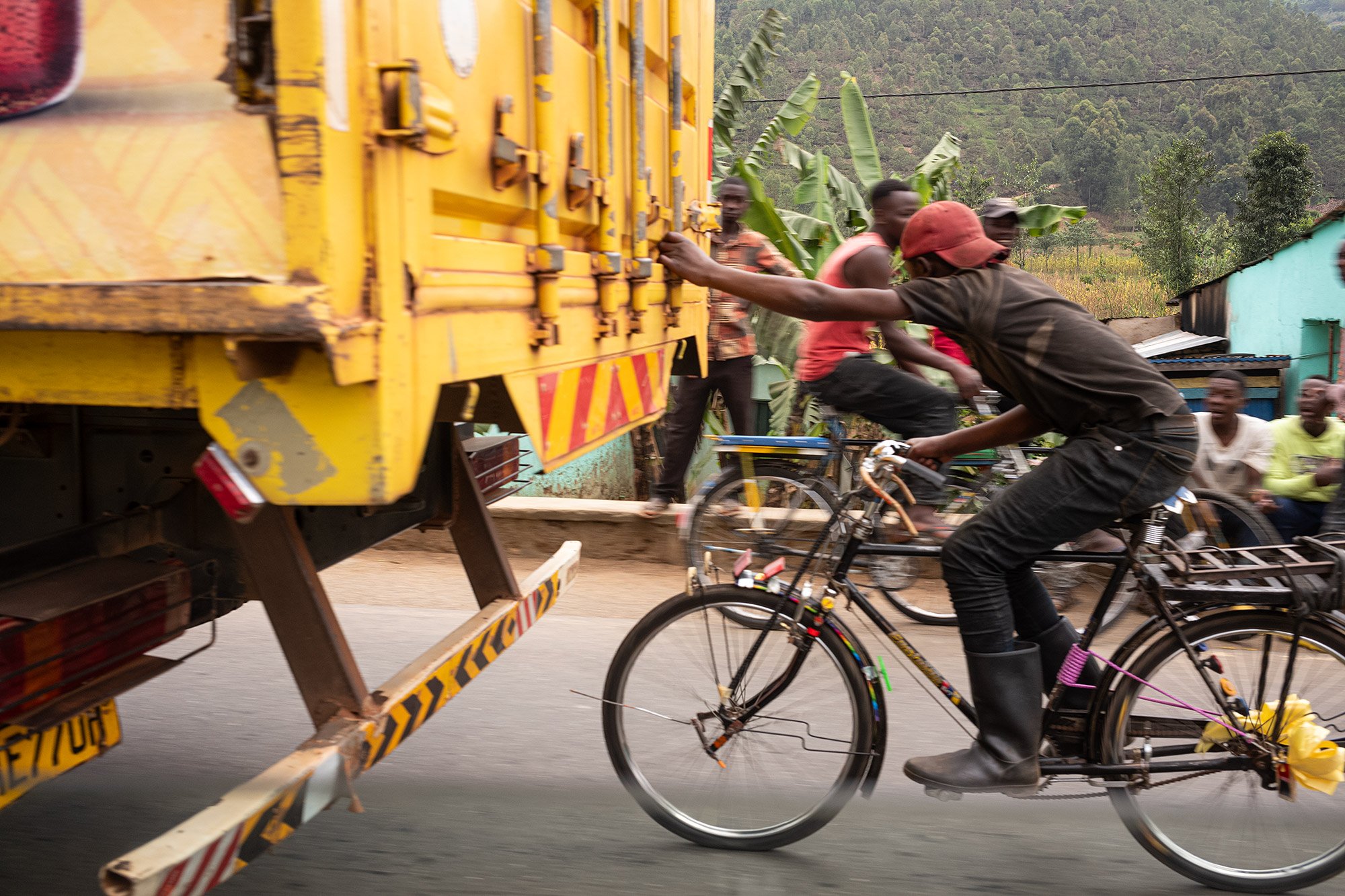

At the border, Kenneth directs me to step out of the Pathfinder and walk across no man’s land to the Ugandan side. There, offices sat side-by-side: Rwanda on the right; Uganda on the left.
Initially, I stepped first into the wrong office and was asked if I had exited Rwanda yet. I said no and the man directed me next door. There, the immigration officer asked me how long I had been in Rwanda and my plans after Uganda. I said I’d be returning in four days. He stamped my passport and waved me back next door. I told him I’d see him on Monday.


It’s mostly trucks at the border, all waiting for their paperwork to be completed. Kenneth has handed his paperwork to a runner to help him with the process. He tells me it’s easier and usually less hassle to outsource. There’s a rotating cast of three people he tends to use.
Moneychangers prowl the parking area with thick stacks of bills in hand offering US dollars, Rwandan francs, and Ugandan shillings. I take a look and tell Kenneth I’ll want to change some money on the way back to give to my neice as a souvenir. One character offers me a ridiculously low exchange rate dollars to shillings; I decline. He tells me to remember him and look for him when I come back.
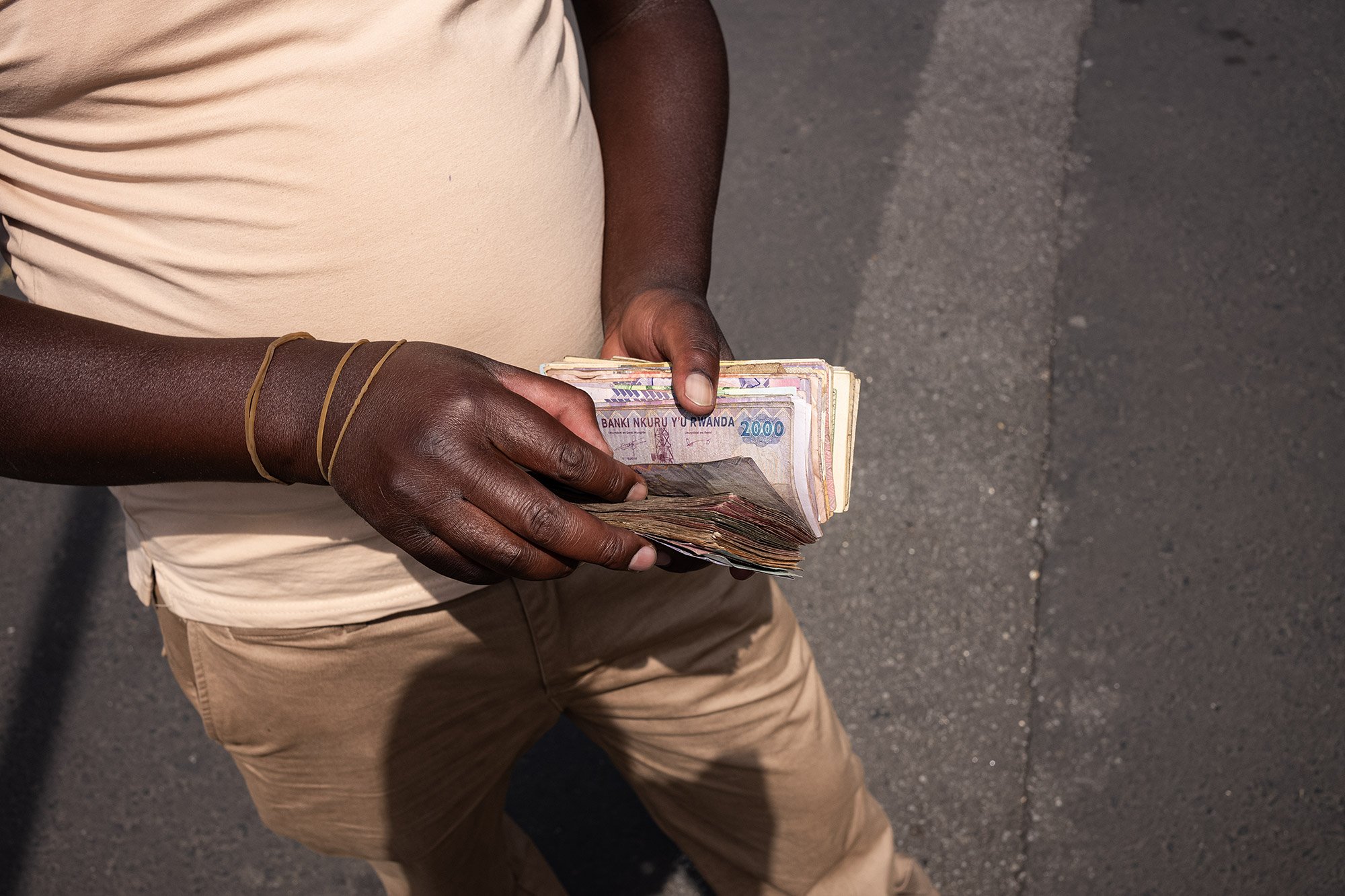
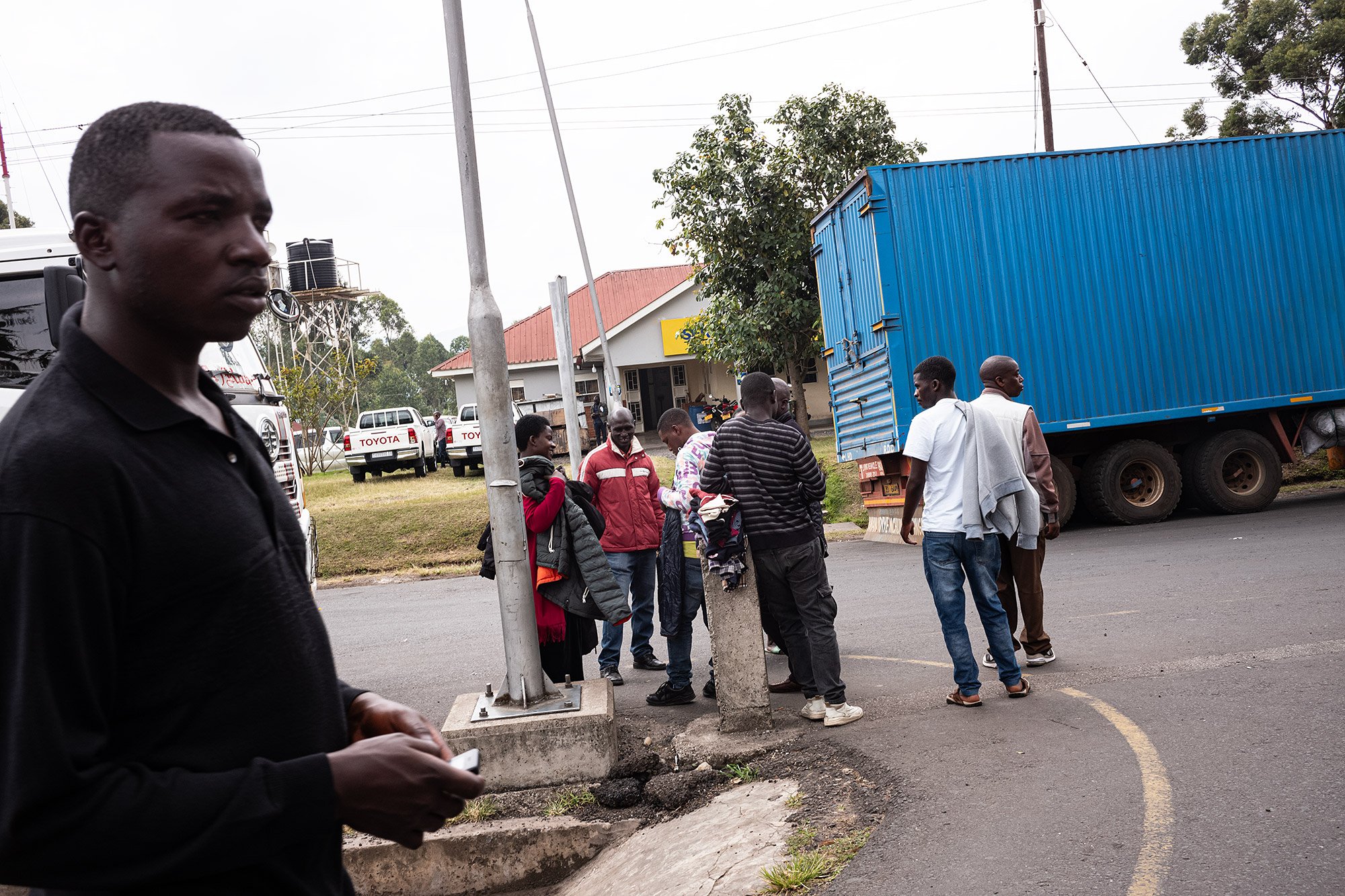
Once past the border Kenneth tells me not to worry as he crosses to the other side of the road; they drive on the left. We pass through the last town we’ll see for a few days. There’s litter on the ground; something I haven’t seen in Rwanda.
At the edge of town we continue straight off of the sealed road onto a dirt and gravel road; it’s also the last we’ll see of a sealed road for a few days.
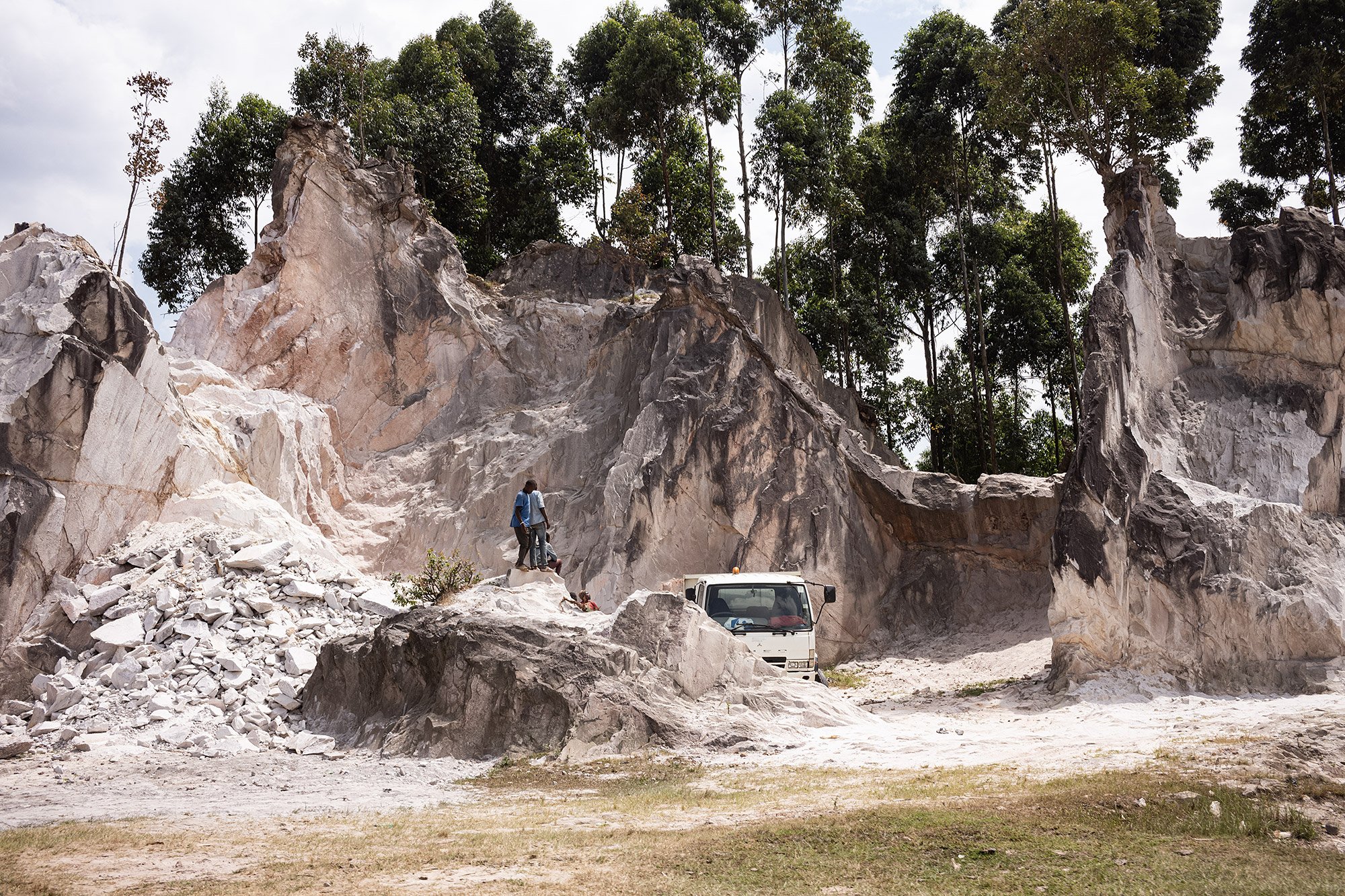
We drive past an open limestone deposit. People are shoveling it onto trucks to be used in making cement.
The road turns to dirt. At a fork in the road Kenneth drives straight and then pauses. He makes a call then backs up and takes the other fork. He tells me there’s a bridge ahead that’s been damaged in the rainy season. It’s not yet repaired and so we’ll have to take the long way around.
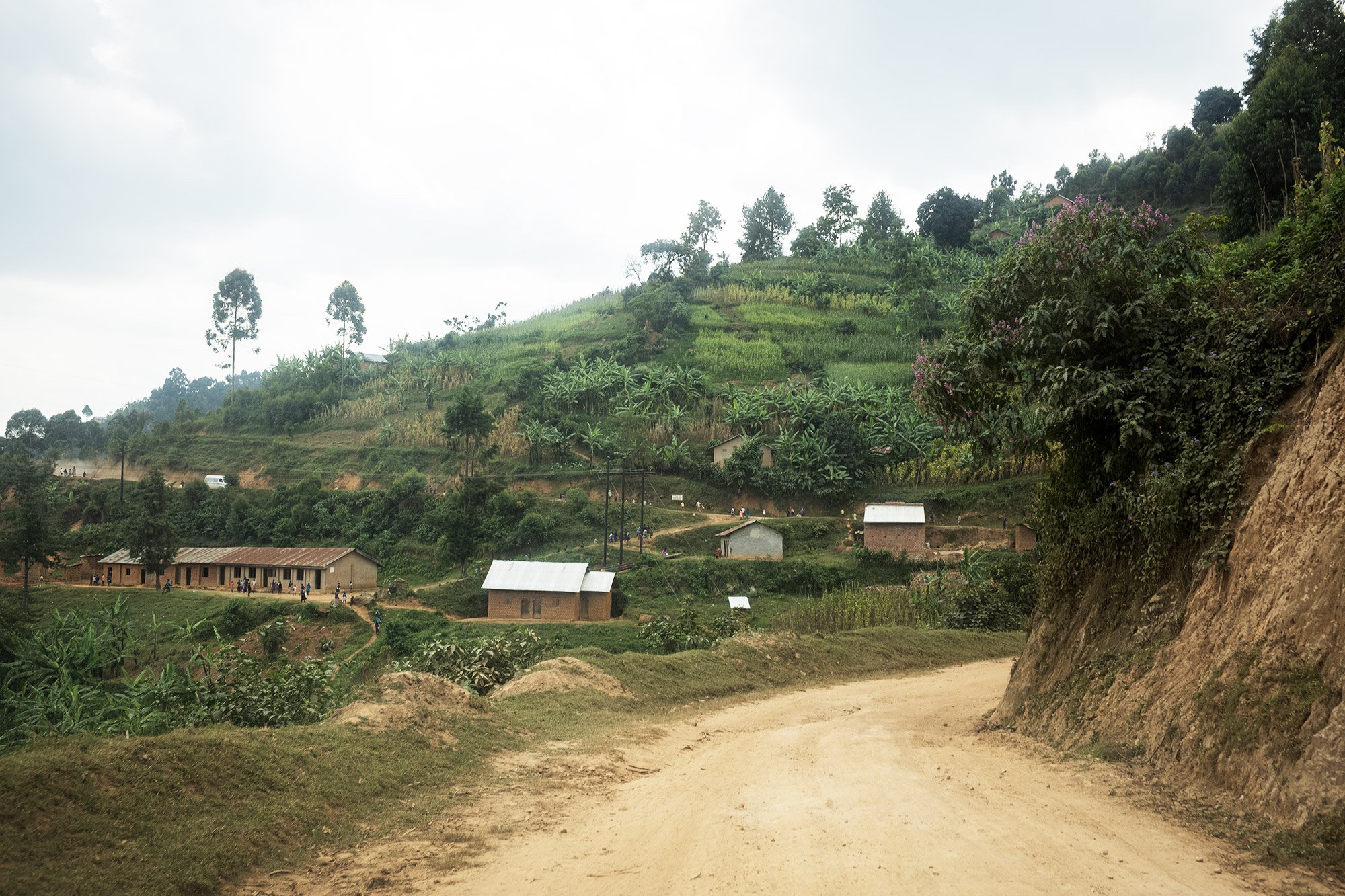

I take photos through the front windshield of children as they are let out from school for lunch and run along the road home. Fields climb the hills around us, hugging the landscape as it slopes up towards the sky.

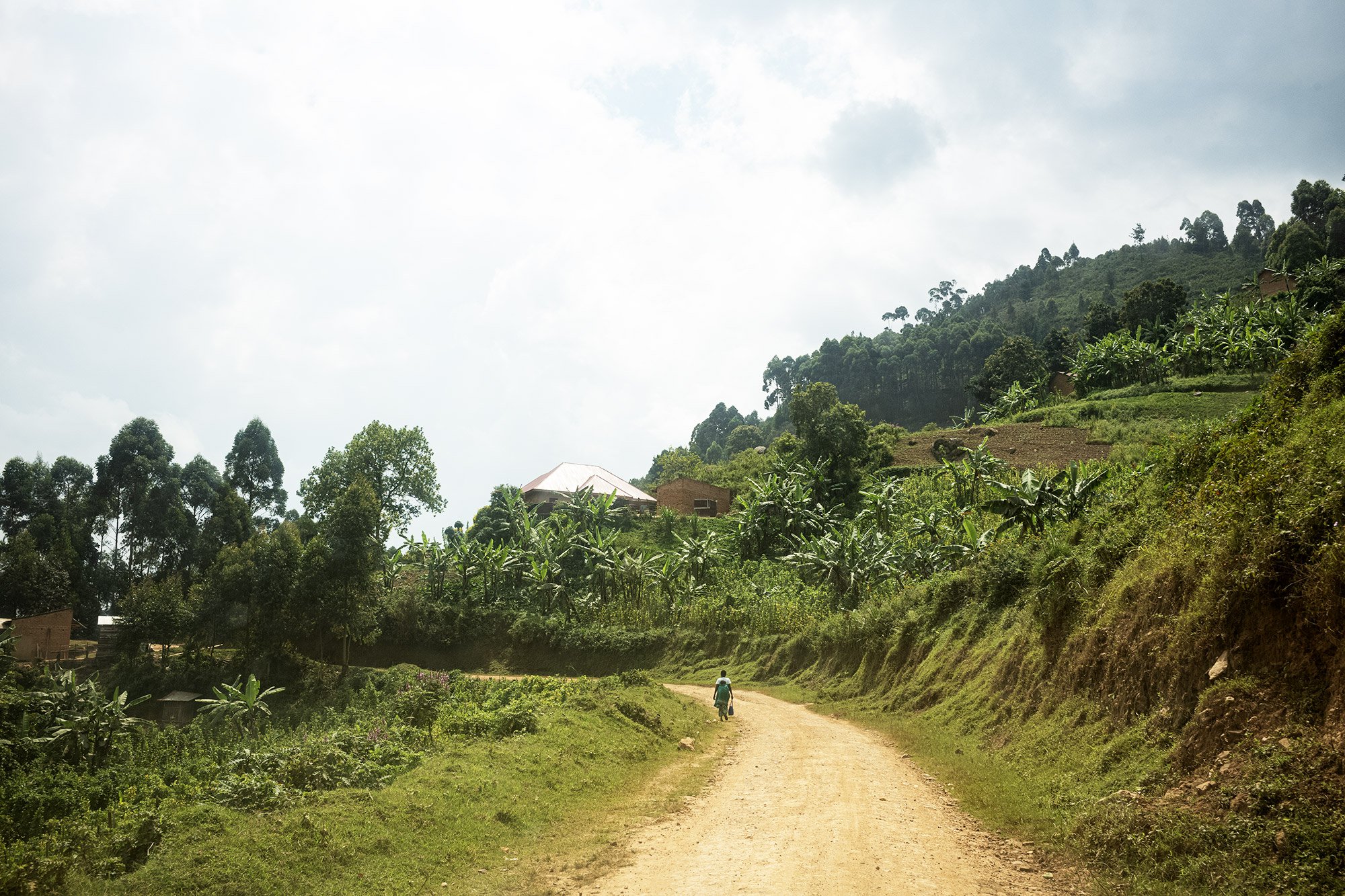

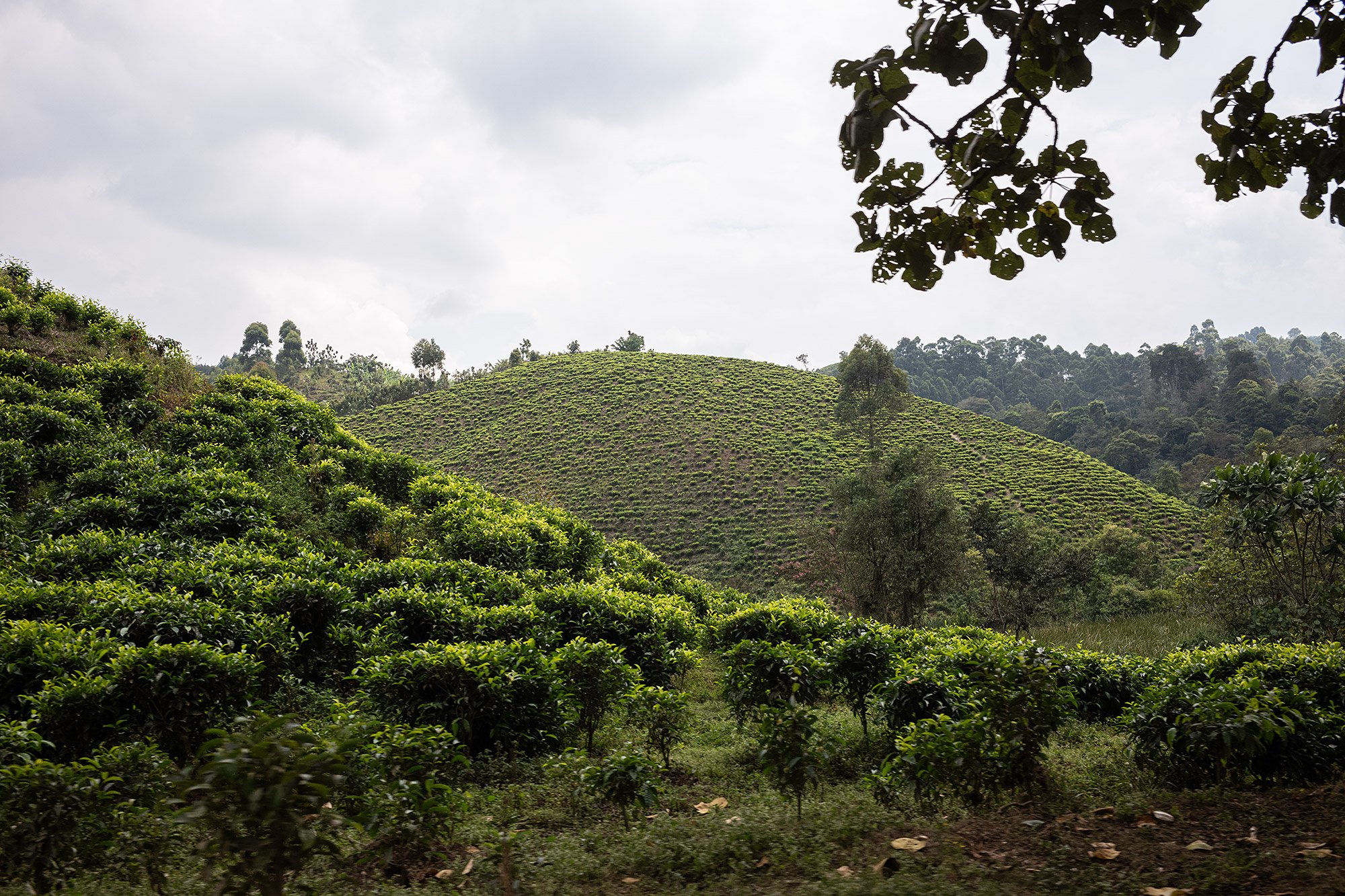
Soon we catch our first glimpse of the lake. We’ve passed a smaller one on our drive, but Lake Mutanda dwarfs that one. It’s been a long time since I’ve been by a large body of water (flying over the Atlantic notwithstanding) and my eyes drink in the sight.


At the Chameleon Hill Forest Lodge I am welcomed and sat at the terrace overlooking the lake. It’s a beautiful spot; Kenneth tells me it’s his favorite lodge in the area. I stand at the railling and stare until I’m asked to fill out some paperwork to check in before being led to my cabin, which boasts yet another view overlooking the lake.

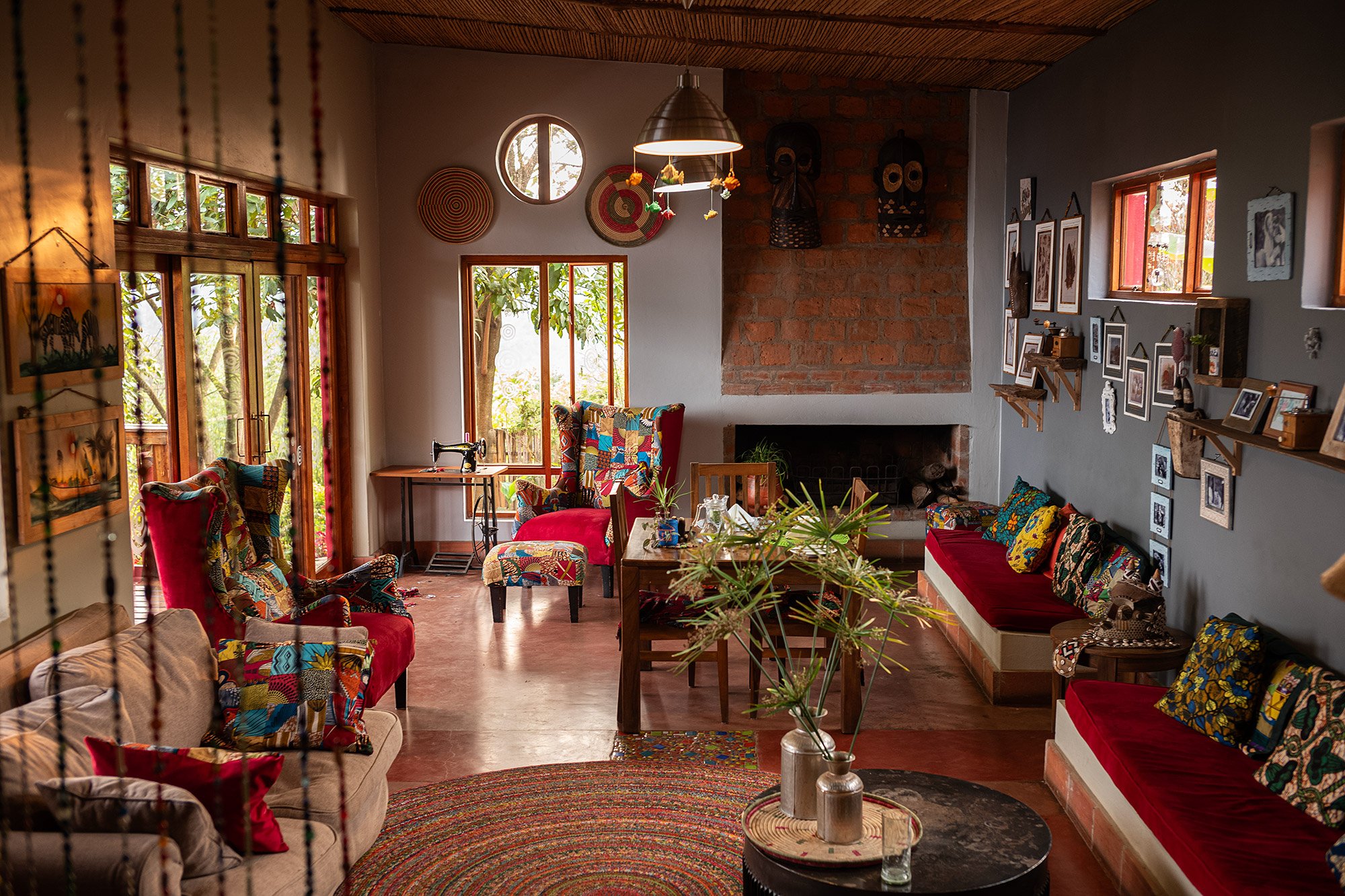
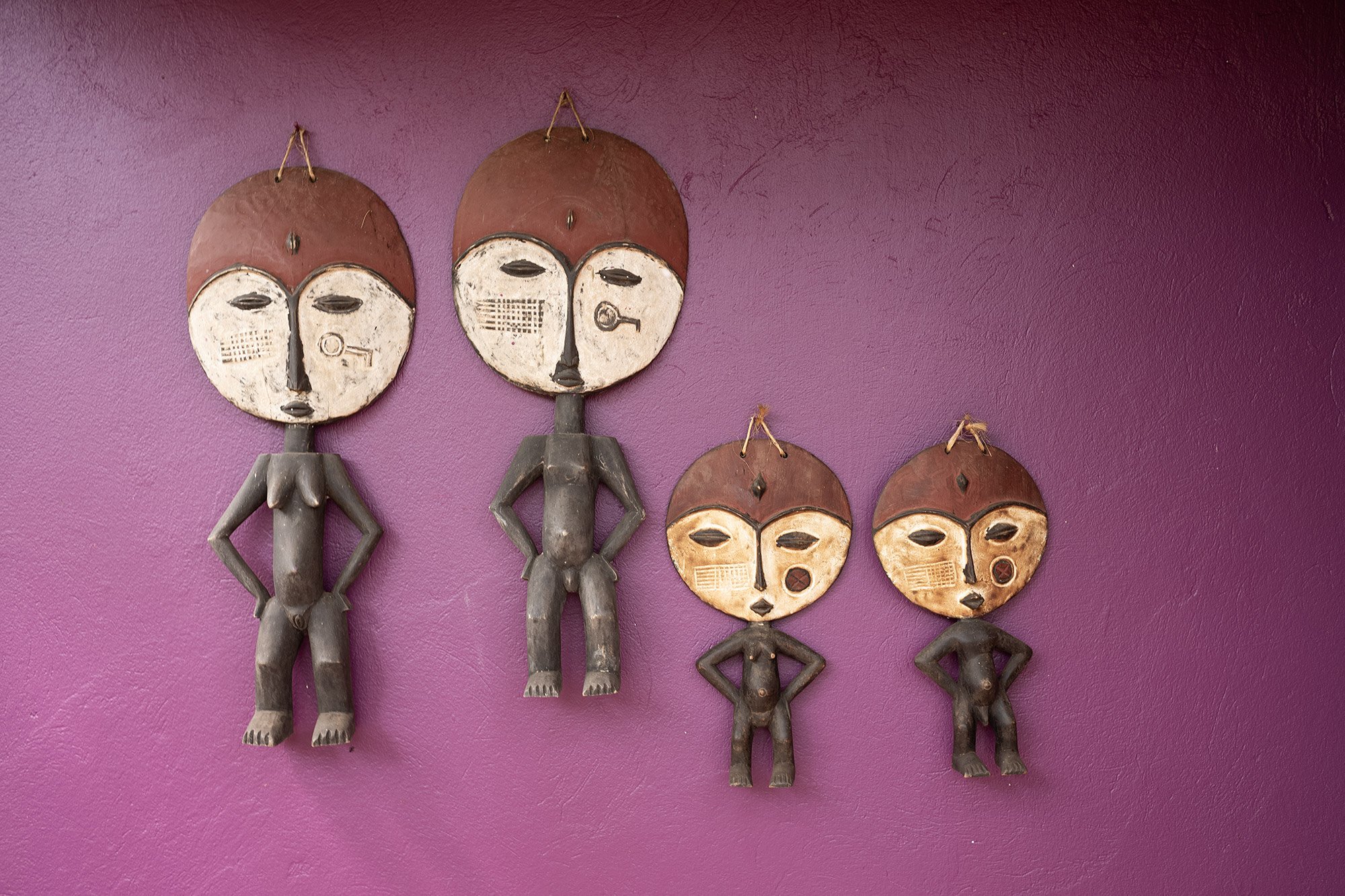
I take an early dinner before turning in for the night. It’s going to be another early morning drive to Bwindi Impenetrable Forest and another opportunity to visit mountain gorillas in their home range.
16 June 2023
🇺🇬
